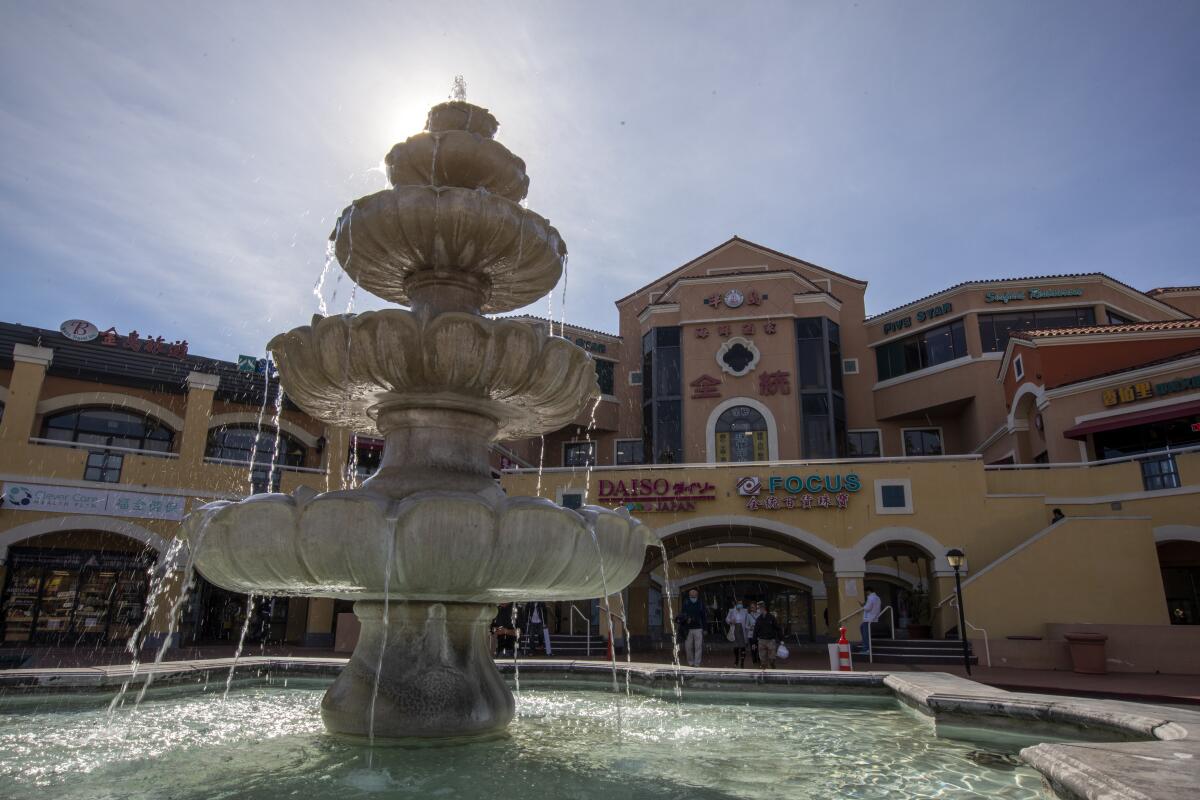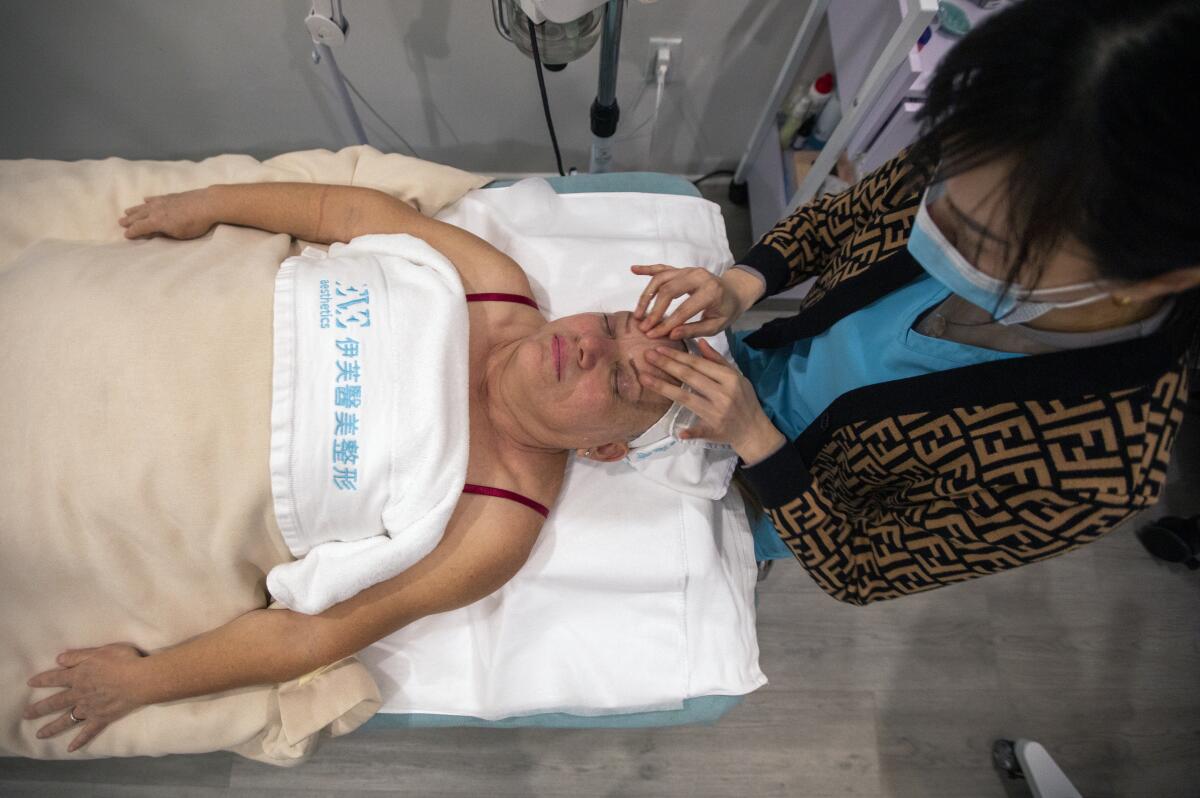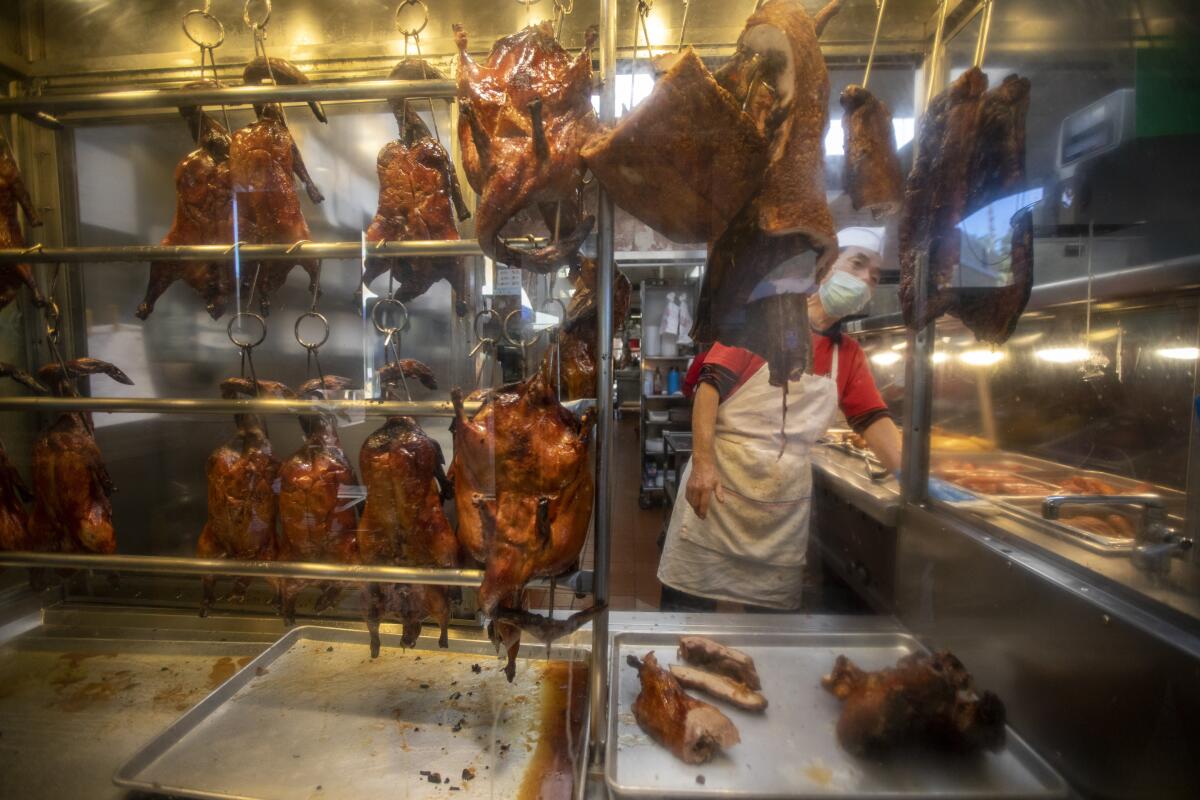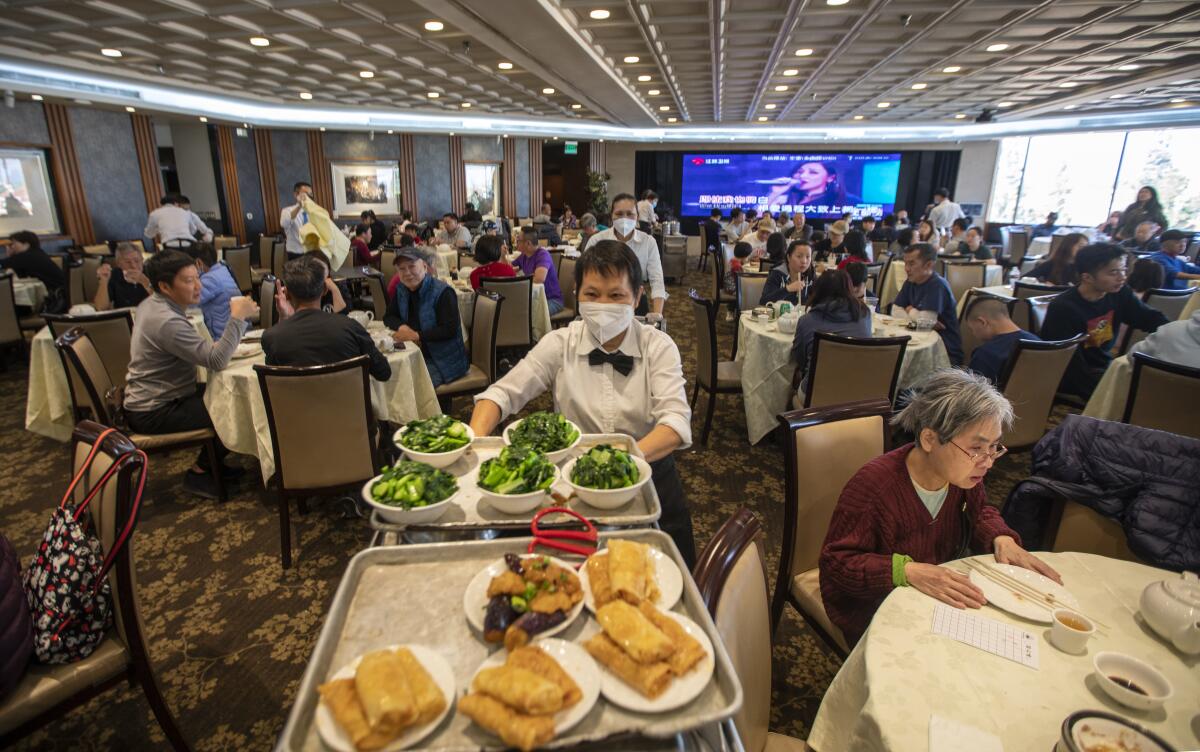How renovation of an iconic Chinese mall represents a shift in L.A.’s Chinese community

- Share via
San Gabriel’s Focus Plaza, known affectionately as Chinese Disneyland, has always lived up to its nickname.
The gargantuan Chinese strip mall, anchored by a Chinese grocery store, offers two levels of restaurants, jewelry stores and ginseng stores, culminating in a multistory glass-fronted department store with a dim sum restaurant on the top floor. Its vast parking lot fits more than a thousand cars, which never seemed to make it any easier to find a spot.
The plaza’s opening in 1990 signaled that the center of the Chinese community in Southern California had shifted east from Chinatown in downtown Los Angeles. But now owner Tawa, which runs the Ranch 99 grocery chain, is planning a renovation that will transform Focus Plaza into a more modern, affluent commercial center resembling those in Irvine, Pasadena and Costa Mesa.
“It’s this shift from faux California Mediterranean to ultramodern design chic, which is probably more how modern Chinese immigrants and second-generation Asian Americans see themselves,” said James Zarsadiaz, a history professor at the University of San Francisco and author of a recent book about the San Gabriel Valley called “Resisting Change in Suburbia.”

The new environs reflect the changing character of a Chinese community that’s another generation removed from Chinatown, said Zarsadiaz, native of Walnut. The cultural and economic ties to homeland countries are still strong, but the staff at these new malls probably speak English, non-Chinese businesses and customers are common, and it’s not the only place in town for boba anymore.
The renovation arrives at a time when Chinese tourism to Southern California is plummeting thanks to pandemic travel restrictions, concerns about racism and deteriorating relations between the U.S. and China. Ginseng and gift shops, hotels and jewelry stores can no longer rely on regular busloads of Chinese visitors. Chinese tourism spending in Los Angeles County fell to $693 million in 2020, down from $3.9 billion in 2019. And stricter limits on international investments have reduced the flow of Chinese capital in California to a trickle.
Longtime visitors to the plaza such as Kristie Hang say it has long been in need of an update. Irvine, Pasadena and South Coast Plaza in Costa Mesa are now attracting most of the hot new restaurant openings from Asia, said Hang, a native of the San Gabriel Valley and a local food expert.
“Irvine is beating us. [Focus Plaza] used to be that one plaza where you could do everything,” Hang said. “But it really hasn’t changed much since the ’90s.”
It can still be hard to find a parking spot on the weekends, but on weekdays it can get so quiet that footsteps and voices echo in the plaza’s courtyard.

I was in seventh grade when I visited Focus Plaza for the first time during a family trip to tour colleges in Southern California. Later, as a beat reporter in the San Gabriel Valley, Boba Avenue 8090 became my satellite office, where I strained to hear my interview recordings over the cheerful blare of Mandopop. I spent many hours wandering the storefronts, trying to decipher the confusing area diagram, which looked more like Ikea furniture instructions than a map.
It was there I learned that the key to understanding the idiosyncratic commercial makeup of immigrant strip malls is understanding they are not just in the business of retail, but also nostalgia.
Immigrant DVD and VHS rental stores have outlasted Blockbuster and Hollywood Video, because Netflix doesn’t have Mandarin karaoke DVDs or movies from when Chinese star Andy Lau was a young heartthrob. There are a dozen different Chinese restaurants because there are Chinese immigrants from a dozen different regions, who prefer their dumplings and noodle soups a dozen different ways. Property and business owners set prices and rents not just to maximize profits, but so that people from their community can afford to be customers.
Focus Plaza was a symbol of the newfound confidence and prosperity of the Chinese community during a time when the Asian population of Los Angeles County was growing rapidly, driven mainly by migration to the San Gabriel Valley. Former President Clinton raised $250,000 at a lunch at Five Star Seafood Restaurant, which back then was called New Capital Seafood Restaurant. Immigrants from Taiwan, Hong Kong and a rapidly modernizing China took pride in distinguishing themselves from Chinatown.

The renovations will bring much needed changes, such as adding seating, easing traffic flow and creating more public space to gather. So I won’t argue that public funds should be spent to preserve Focus Plaza in amber.
But I will miss the Focus Plaza I knew. Much like the immigrants who patronized it, it retained the memories of a China that no longer exists. It was one generation’s effort to construct a home from flavors, smells and feelings, a home that can live only in memory.
More to Read
Sign up for Essential California
The most important California stories and recommendations in your inbox every morning.
You may occasionally receive promotional content from the Los Angeles Times.











